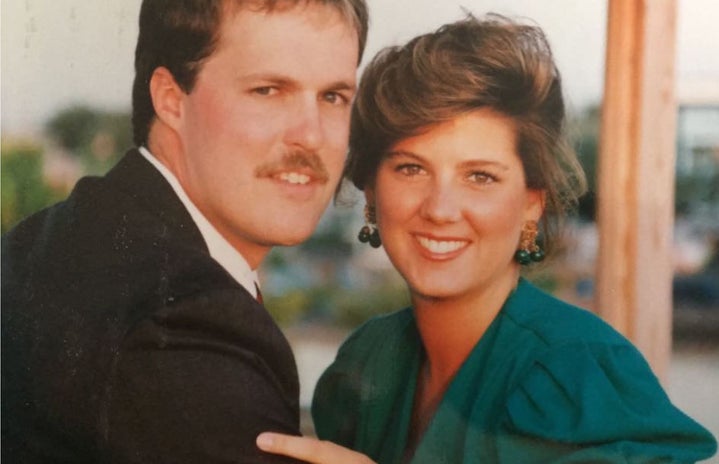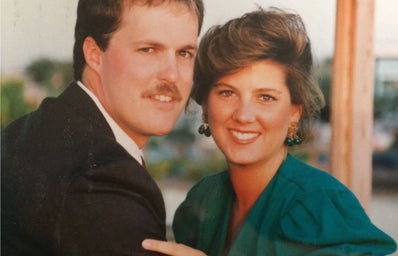People love to say that they can or will change. It is one of the most common lies we tell ourselves and those around us. In our defense, it is hard to change, especially as we get older and our identities become more and more defined. Change requires a catalyst, a trigger if you will, in order to get the ball rolling. For some people, their trigger to change comes from seeing others excel and wanting a piece of that success for themselves. Some people, on the other hand, are more inclined to change because of the consequences they face from mistakes they have made or from the challenges they face.
I have endured my fair share of adversity throughout my life. Adults would often say I have faced more in my life than any kid should have to. I lost my mother when I was nine years old. I walked to school for my first day of fifth grade and later that day when I got home I was sat down and told that my mom had passed. At the time I did not really process what this would mean and how it would affect me for the rest of my life. For a while, I went on trying to be strong for my own sake. Even though it seemed like I dealt with the loss perfectly fine on the outside, in reality, I struggled as anyone else would. After some time and maturing, I reached a point where I finally understood how losing a parent at a young age would change my life.
I always remember hearing my parent’s friends tell me “Don’t ever grow up,” or “Stay this age forever.” All my aunts and uncles talked about at family gatherings for Christmas and New Years were “the good old days” of being kids. I never realized how much I would miss being a kid when I was one. Looking back now I understand that I should have treasured it while it lasted.
Dealing with loss as a kid is an unusual experience. It practically robs you of your childhood and forces you to become mature. You must learn how to go about life without this significant person being there, and you must learn how to deal with it and explain it to new people you meet. I often tell myself there is no right way to cope; there are healthy ways of coping and unhealthy ones. I decided that I would not let myself fall into a pit of self-pity and pessimism and I vowed to take care of myself and my family instead of letting us fall apart.
Over time, as I grew up, I figured out how to be more responsible and dependable for my family and for myself. After picking myself up from the shock and grief I realized that I can do more for my father around the house and I could do better in school. I started going to the homework club and got my work done before coming home. After a little while, my unpredictable report cards turned into straight “A” report cards and my family praised my efforts. Instead of sitting around watching television all hours of the day I would clean messy parts of the house and did laundry for myself and my brothers.
I have always been a people pleaser for as long as I can remember. My grandma would always tell me that I needed to grow a backbone and that I needed to stop letting people walk all over me. If someone asked me to do something for them I would rarely say no, I hated to turn people down. I kept the mentality that if I helped out more, everyone would be happy and I never wanted to see my family unhappy after seeing how low they felt when my mom died.
I’m the kind of person that values family above all else, and the people I am close with become like family and I treat them like so. I was raised to always be there for family and to trust them, knowing that they will always be by my side. My brothers and I have gone through a lot growing up and experiencing the loss of our mom, then losing our father during my sophomore year in high school. Despite how hard it has been to persevere and keep an optimistic attitude, we have learned to depend on each other and fight on. Even though I would not wish this kind of loss on someone else, I would not change what happened to me because I would not be the person I am today.
Change is not easy. It takes a lot of effort and self-discipline. Change also requires a desire to be better, there must be some kind of motivation/incentive involved.
In my case, my motivation was to lift myself (and my family) up and keep us going with smiles on our faces. I wanted to be that glue that kept us together and kept us strong. In order to be that glue, I needed to stop feeling sorry for myself. I also needed to understand that people are not always going to give me the benefit of the doubt; not everyone knows what I am going through and so they will treat me like everyone else. I could not rely on the concern and consideration of others forever, there must come a time where I am strong and independent.
All in all, I am proud of the person I have become and the steps I have taken to get here. I am not perfect in any way but I consider myself a resilient person who has overcome a lot while maintaining a positive attitude. It is not easy to make that change but it is also hard to cope with change that you didn’t anticipate happening.



